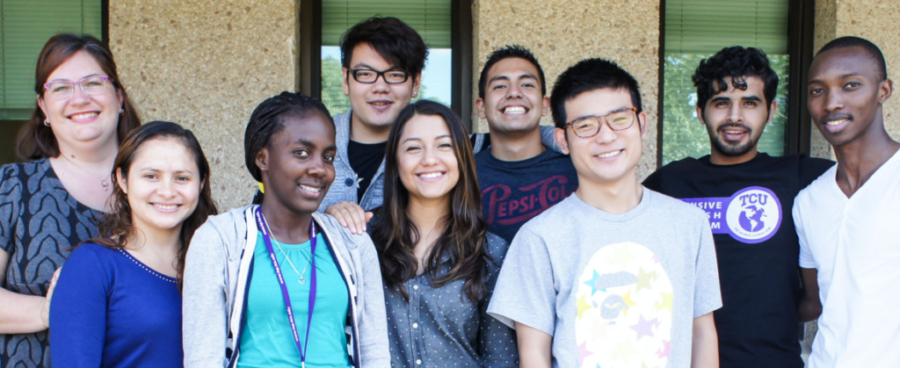TCU offers many programs to help international students adjust to culture in the U.S. TCU now has students from 78 countries as of Fall 2016. For the International Student Services, this means adding programs to help those students adapt to life at TCU. TCU’s International Programs According to Project Atlas, there are roughly 1 million international students in the U.S. as of 2016. There were only 560,000 students in 2006. Business and engineering are the most popular fields of choice, as they make up 40 percent of what international students are studying. TCU has more than 600 international students from 78 countries. International advisor James English said TCU has plenty of programs to help these students adjust to the U.S. English said that he is primarily an immigration advisor, and he helps international students with their visas and immigration documents. In addition to helping students with their documents, the TCU International Student Services works on something they call the Quality Enhancement Plan. “The university chooses discovering global citizenship with the idea of increasing the university’s engagement with the world and with developing nations,” English said. This is because not every student is able to travel to other countries. “We recognize that not every TCU student can travel extensively, especially internationally, and it’s a way to bring the world to TCU,” he said. Orientation International students are required to attend two orientations. One being Orientation, the one every first-year student goes to, and the other being designed by the International Student Services. English said that their orientation covers immigration, culture shock and the U.S. academic system. For a lot of the international students, classes back home consisted of sitting through lectures and then taking one exam at the end of the year. “In many ways, our international students are not having trouble so much with the U.S. culture because it’s a very globalized world,” English said. “We noticed they are having trouble adapting to the U.S. academic system because it is much different from their home country.” He added that in their orientations, they have shifted more focus to the academic system so they can adapt to the system here. Football 101 “It’s hard to believe now, but a few years ago we discovered that international students were not going to TCU football games,” English said. “What we discovered was that they just didn’t understand the game and the role it played.” The International Student Services decided to adopt a program called “Football 101” to solve this issue. The program allowed these students to go to the indoor stadium and try the sport out for themselves. English said that students got to try on helmets, football pads, and they explained the rules of the game to them and allow them to run plays. “Since we started the program, nearly all the international students go to the games because they understand the game,” he said. Global X International Student Services also designed a program called Global X, which partners international students with U.S. students. They pick a global topic and develop a public presentation together. “It’s a globally themed, code learning program that partners U.S. students and international students and not in a mentor-protege way but instead they are on a team together,” English said. The program is a competition, and the winning team gets to go on an international trip together. From Rwanda to TCU According to the TCU Office of Institutional Research, our biggest international population comes from Vietnam and China. As of Fall 2016, there are 97 students from Vietnam and 80 students from China. The TCU Fact Book also states that 38.7 percent of international students come from eastern Asia while 17.1 percent come from Central America or the Caribbean. Over the past few years, TCU has had a few students come here from Rwanda. One of their brightest students is Patrick Rutikanga. 
Categories:
TCU has multiple programs to help international students
Published Mar 22, 2017
Students that are involved in the Intensive English Program at TCU. (Photo credit: Home page of IEP’s website)




